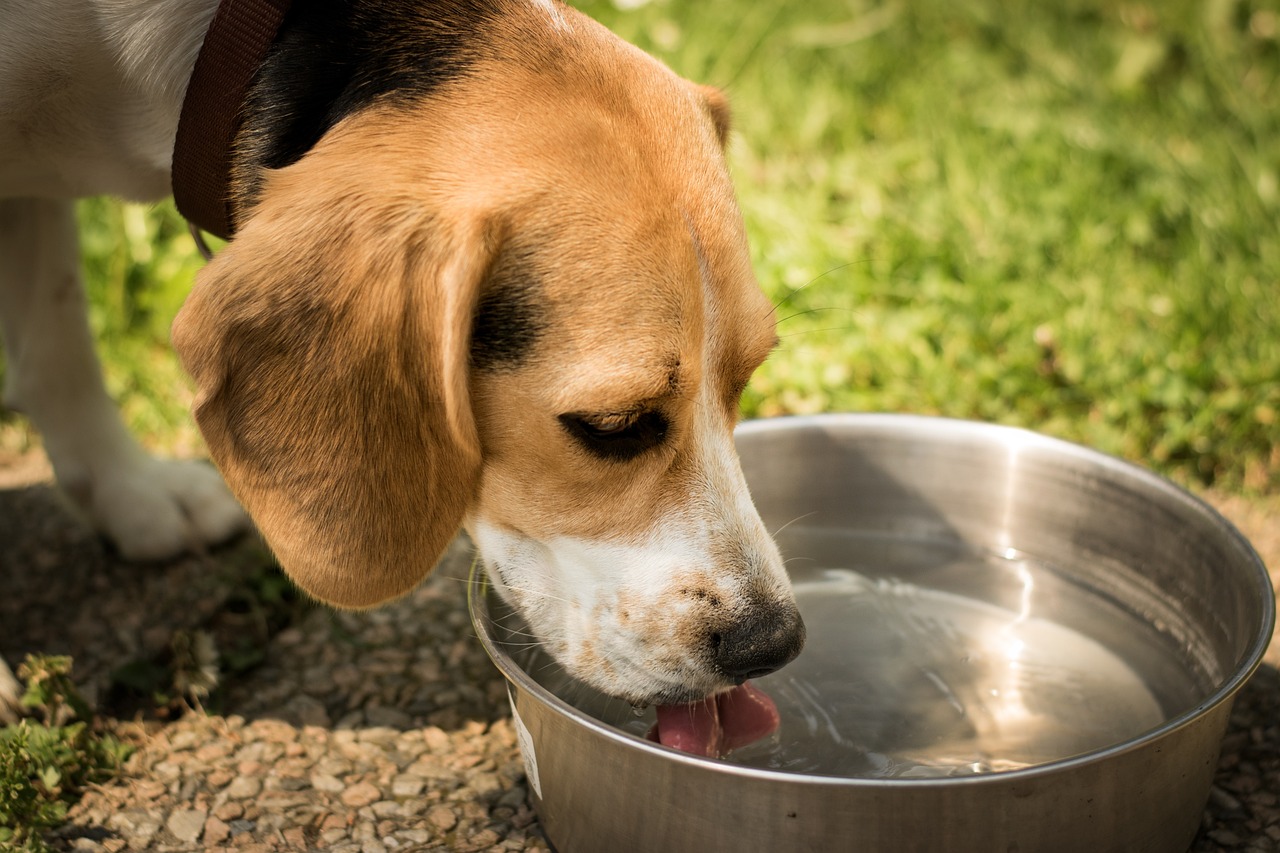
Filtered Water for Pets
By Dan DeBaunShare
If you are concerned about what's in your drinking water and the potential health risks you may be exposed to, you may be considering purchasing a water filter or may even have purchased one already. One common question that is often floated around is: can pets benefit from filtered water and should I be giving my pets filtered water to drink? The answer is yes!
Many harmful contaminants pose a health risk to both humans and animals, so it makes sense to filter out these contaminants to ensure your whole family, including your pets, remain in peak health. While it may sound somewhat extravagant to splurge on an expensive water purification system for the sake of your pets, it can be an excellent investment for your extended family's health and well-being.
There are literally hundreds of different types of drinking water contaminants, including bacteria, viruses, lead and other heavy metals, pharmaceuticals, microplastics, pesticides, PFAS, and other toxic chemicals that could be lurking in your tap water. Sometimes they are easy to detect as they give off a foul taste or odor, but very often they do not make their presence known. If you would not willingly drink your tap water, you probably shouldn't be giving it to your pets either. Similarly, if you are issued with an order not to drink your tap water due to safety concerns, it would not be wise to give this water to your pets to drink.
Benefits of Filtering your Pets Water
The primary benefit of filtering your pet's water is to remove as many unwanted contaminants as possible. Considering there are hundreds of harmful contaminants that can potentially be in your tap water, you may want to take measures to protect your pet from harm. For example, waterborne bacteria can cause internal infections and gastrointestinal problems such as diarrhea, should your pet be exposed to them.
Filtered Water for Dogs
While there has been a lot of focus on lead in drinking water, and its health consequences, other heavy metals also pose a risk. For example, copper can cause liver and kidney problems in humans, and when dogs are exposed to too much copper they can suffer storage hepatopathy, which leads to liver damage. If your water has copper levels greater than 0.1 parts per million (ppm) you may want to consider filtering it with a filter system that is capable of removing copper.

Exposure to pharmaceutical products such as NSAIDs, antibiotics, steroids, anticonvulsants, acetaminophen, or medication for parasites and fungal infections can also cause cirrhosis of the liver in dogs.
Dogs are typically not too fussy about the quality of the water they drink, so it is up to pet owners to take the necessary steps to ensure their well being.
Filtered Water for Cats
Cats, on the other hand, are water sommeliers. Cats tend to be much more fussy about the quality and freshness of the water they drink. If it smells or tastes bad, they will most likely turn up their little noses in disgust. For this reason, you will often find that cats prefer running water to standing water.
Cats naturally do not consume large volumes of water as wild cats are carnivores and are programmed to get most of their water from their prey. However, domesticated cats simply don't get as much water from the food they eat, especially if their diet consists largely of dry kibble. As a result, many house cats suffer from dehydration, which can lead to kidney problems over a period of time. As kidney disease can further contribute to dehydration, this results in a viscous cycle that can lead to a rapid deterioration in your pet's health.

As cats are extremely sensitive to smells, they may be put off the water if they detect the slightest chemical smell. Tap water that smells strongly of chlorine, for example, may not pass the grade. Giving your cat fresh filtered water daily will help encourage them to drink more water to ensure they stay well hydrated.
Should You Filter Your Pets Water?
Filtering your pet's water to remove any harmful contaminants or objectionable taste and odors is a good idea. Not only is this more economical than providing them with bottled water, it is also a more environmentally-friendly solution. A countertop filter will ensure there is a steady supply of freshly filtered water on tap. It's best to give this to your pets at room temperature rather than storing it in the fridge. A good quality gravity-fed countertop water filter, such as a Berkey, that is capable of removing a wide range of contaminants found in tap water will help keep your pet hydrated and healthy.
-
Regular price $234.00 USDRegular priceUnit price / per
-
Regular price $327.00 USDRegular priceUnit price / per
-
Regular price From $367.00 USDRegular priceUnit price / per
-
Regular price From $408.00 USDRegular priceUnit price / per
-
Regular price From $451.00 USDRegular priceUnit price / per
-
Regular price From $478.00 USDRegular priceUnit price / per
-
Regular price $332.50 USDRegular priceUnit price / per
$350.00 USDSale price $332.50 USDSale

Dan DeBaun is the owner and operator of Big Berkey Water Filters. Prior to Berkey, Dan was an asset manager for a major telecommunications company. He graduated from Rutgers with an undergraduate degree in industrial engineering, followed by an MBA in finance from Rutgers as well. Dan enjoys biohacking, exercising, meditation, beach life, and spending time with family and friends.
~ The Owner of Big Berkey Water Filters















